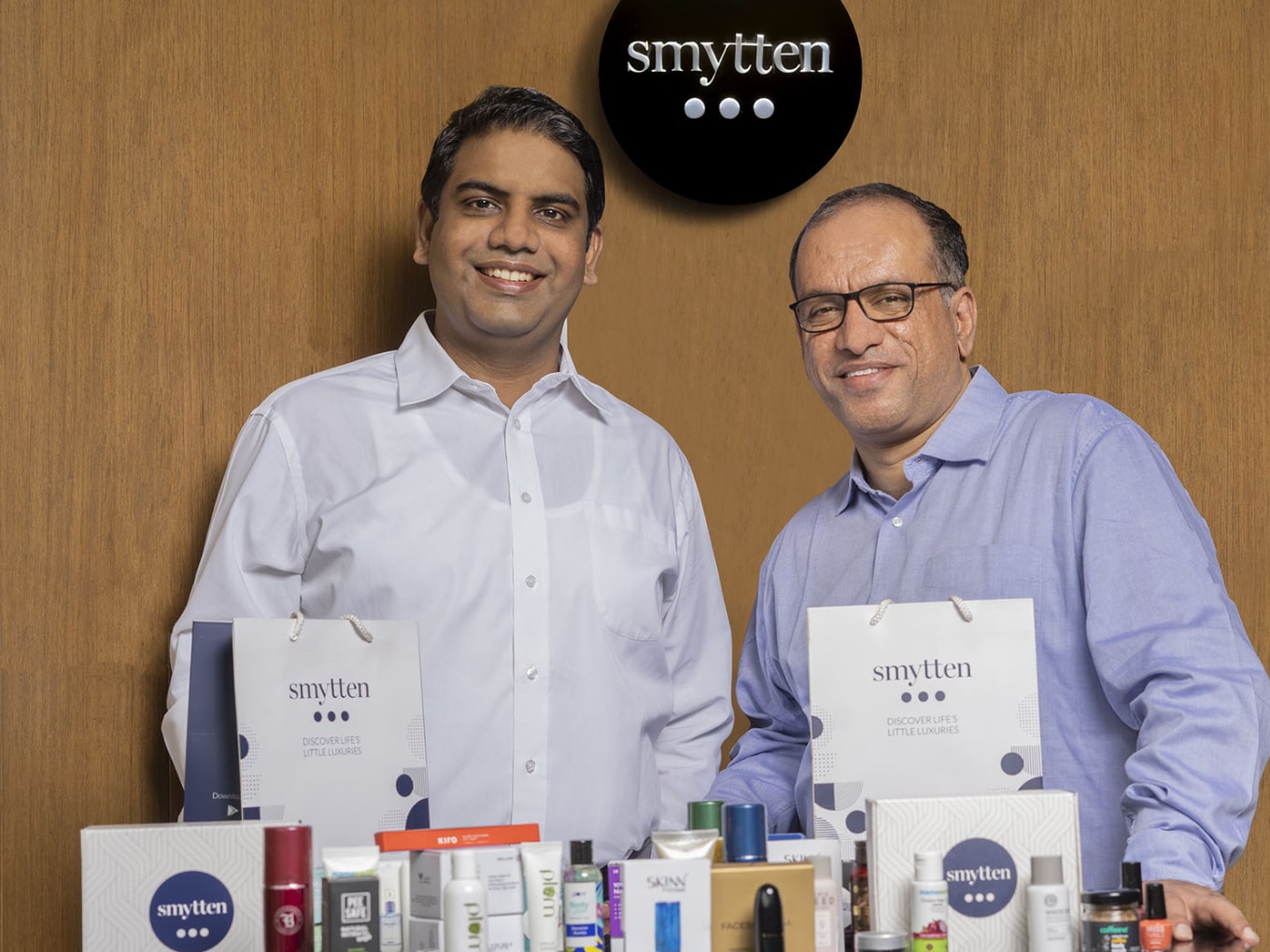
Testing and sampling has been a tried, tested, and successful approach for new brands for decades. In the Indian market, the free sampling strategy has always used offline methods such as supermarkets or stores, but with ecommerce gaining ground in metros and Tier 1 cities, startups such as Myntra ventured into online sampling, however, the trend is yet to catch on in other D2C sectors.
These days, the Indian market is flooded with similar products from disparate D2C brands, which makes the purchase decision complicated for the consumers, while also consigning smaller brands to the ignore pile thanks to marketing dollars that bigger brands have, regardless of product quality. D2C discovery platform Smytten is trying to bridge this gap.
Through the trial platform, consumers can sample products at low cost and get rewarded for repeat purchases. Looking to make deeper inroads in the D2C segment, which is getting flooded with brands, Smytten has raised $6 Mn in its Series A funding round led by FireSide Ventures, the company announced today (August 24). Sharrp Ventures, the family office of Harsh Mariwala; Survam Partners, the family office of Hero Group’s Suman Kant Munjal; and Waao Partners, the family office of serial entrepreneur Pratul Shroff have come on board as new investors, while Roots Ventures has followed up on its past investment.
Founded in early 2016 by former Unilever and Google executives Siddhartha Nangia and Swagata Sarangi, Smytten had raised $1.5 Mn from Root Ventures in 2019. Sarangi told us that the idea is to increase the trust that drives loyalty, through rewards-based sampling. “At the end of the day, India is a trust deficient culture by design. Consumers will not open their wallets till they are 100% convinced. And what better way to convince a consumer from a brand perspective while leading with product innovation and filling the mesh gap than to give away the product,” said Sarangi.
The startup plans to invest the funds towards enhancing consumer engagement, allowing D2C brands to better assess market-fit, retention, product marketing and communication strategy and more. It will also utilise a part of its fund to further expand its user base on the ecommerce side, and to build faster trial experience capabilities.
The startup claims to have an extensive testing cycle of products to check for quality before filtering out products based on the category, target audience, positioning and pricing among other factors. It drives customer engagement to the product using targeted marketing and feedback, charging a variable fee from the brand. It also charges a nominal fee from its customers for availing its sampling services. Smytten claims to have over 700 luxury brands across several lifestyle categories, such as fragrances, beauty & makeup, food & beverage, and several others.
Through its app, it claims to service nearly 5 Mn users. Cofounder Sarangi claims that over the last year alone, it has acquired over 3 Mn users, and plans to add nearly 50 Mn users in the coming two or three years. In the year 2021, its ARR crossed INR 100 Cr, he added.
Among the user base, nearly, 70% of its users are female with a core target group of 18-25 years. A major part of the startup’s revenue comes from its existing users referring customers to buy from Smytten. Besides, it also runs targeted marketing on several digital platforms and co-marketing services with brands to bring in users.
Smytten has seen a spurt in business from the Tier 2 cities. In pre-Covid times most of the business was driven from Tier 1, but it expects its user base from Tier 2 and beyond to surpass its users in metro soon. Sarangi said the plan is to expand offline as well. “The online infrastructure will enable us to offer our services from any part of the country just the next day and in the offline space, there will be touch points which will become an integral part of the consumers’ day-to-day life,” mentioned Sarangi.
However, these wouldn’t be pure-play offline stores. They would primarily be an experience zone — a mix of physical and digital stores based on what format fits in. The offline stores would offer services on try-on screens, automatic vending machines, kiosks, and in many other digital formats synced up to the consumer’s phone.
Given the increasing traction from Tier 2 cities, the startup plans to expand its offline model in 25 such cities in phase one.Since the onset of covid, Smytten has seen a drastic change in the consumer buying pattern. Targeted marketing makes customer acquisition much easier in this environment. Sarangi added, “We see an increased traction on health products on our platform. People are willing to pay a little extra and invest in products from health-based brands.”
Besides health products, organic and natural skin care and hair care products, active cosmetics, and pet care space have also been witnessing aggressive growth. Brands like Mcaffeine, Plum, MamaEarth, The Moms Co, Kaya, Derma Co, Body Wise, and others have seen an increased interest from consumers.
Although the startup doesn’t face any direct competition, ecommerce platforms are bridging the gap by letting customers sample products. “An ecommerce brand spends INR 60-70 on a product’s packaging, logistics, and other factors; offline, a company spends INR 20-25. This makes the whole process cost-prohibitive for new brands. Smytten makes the process easier for companies by taking away this distribution cost away from them completely,” he highlighted.
The post D2C Discovery Platform Smytten Bags $6 Mn; Eyes Offline Expansion appeared first on Inc42 Media.
0 Comments